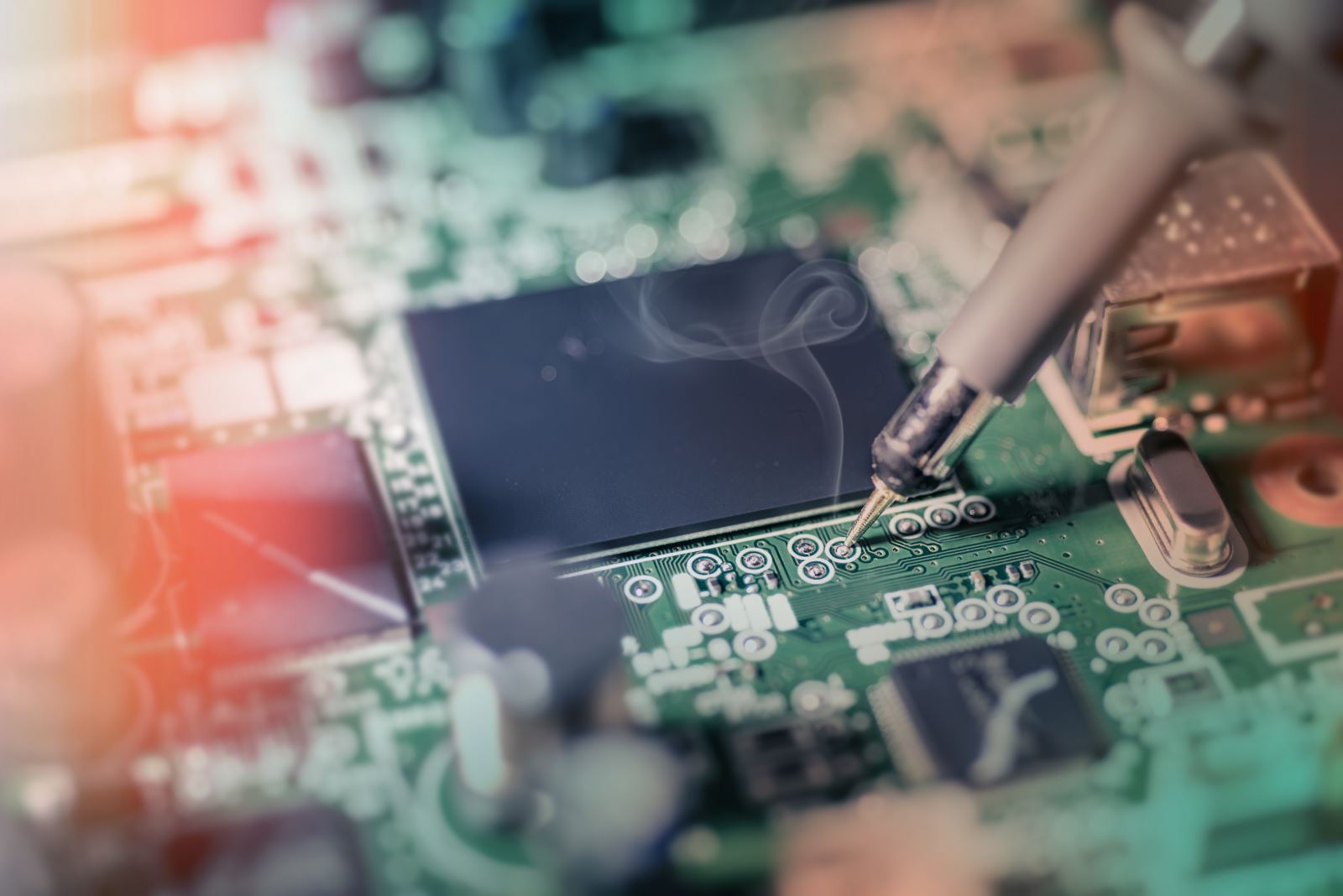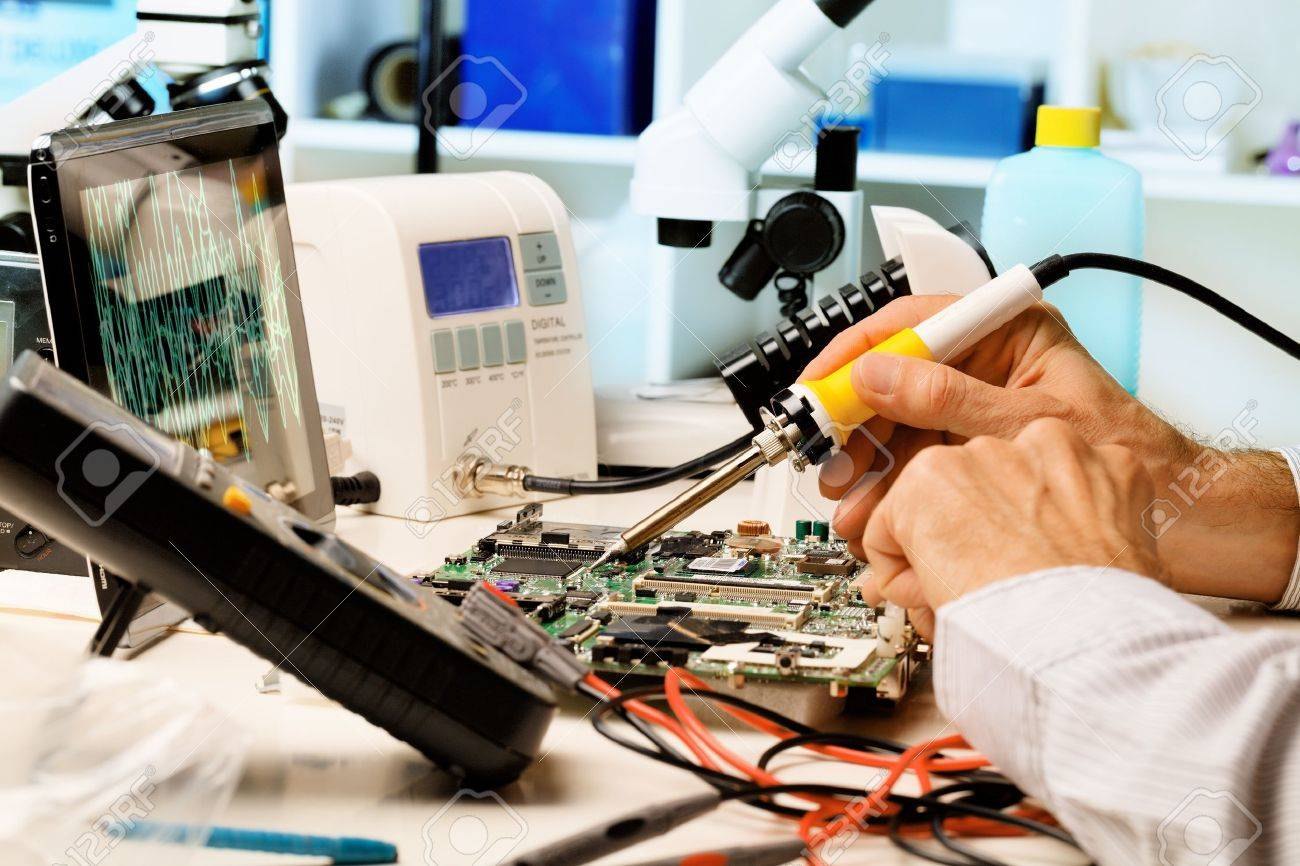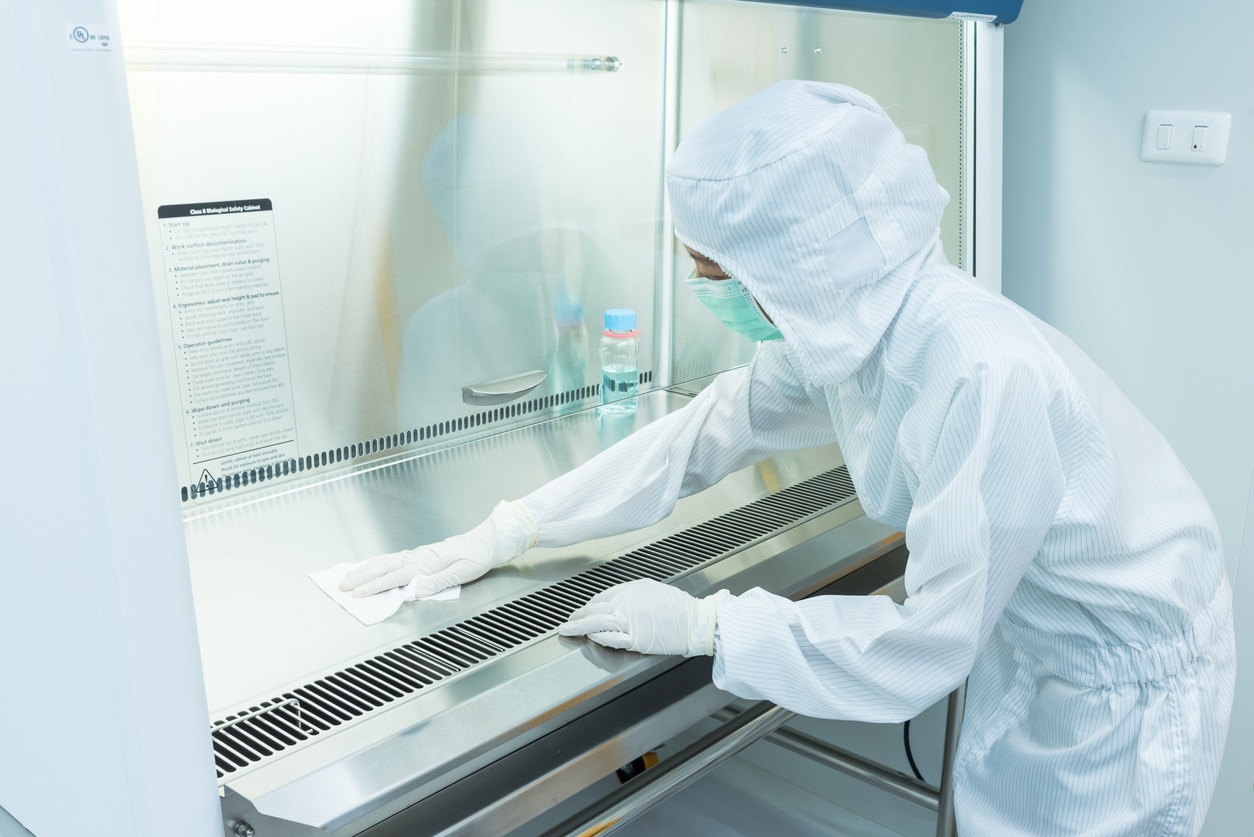
Today's advanced world relies on accurate and reliable data. In this context, the role of analytical equipment in producing this data is undeniable. From advanced research labs to industrial quality control centers, the correct and precise operation of these devices guarantees project success and reliable results. But how can you ensure the proper operation and longevity of these valuable tools? The answer is one word: specialized repair and maintenance.
In this comprehensive article, join us as we delve into the world of specialized repair and maintenance for analytical equipment. We'll discuss the importance of this vital process, examine the types of services offered, share key tips for choosing the best option, and ultimately illustrate the importance of this action in practice. So, if you're looking to guarantee the accuracy of results, increase lab efficiency, and save on long-term costs, stick with us.
Why is Specialized Repair and Maintenance the Key to Success?
At first glance, the costs associated with analytical equipment repair and maintenance might seem unnecessary. But the truth is, this action is a smart investment with significant returns. Several reasons underscore the importance of this process, and we'll highlight the most important ones:
- Accuracy and Precision of Results: Faulty equipment produces incorrect data. Regular maintenance prevents these errors and ensures the credibility of lab results.
- Preventing Project Downtime: A sudden breakdown of a key device can disrupt an entire research project or quality control process. Preventative maintenance avoids these issues and keeps workflow smooth.
- Extending Equipment Lifespan: Proper and timely care extends the useful life of devices and avoids the high costs of replacing them.
- Compliance with Quality Standards: In various industries, compliance with quality standards like GMP and GLP is mandatory. Specialized repair and maintenance ensure your equipment always meets these standards.
- Improved Return on Investment (ROI): By increasing the accuracy of results, preventing breakdowns, and extending equipment lifespan, you'll ultimately see cost savings and improved ROI.
As you can see, specialized repair and maintenance isn't just an extra expense; it's an investment that brings numerous benefits. Now, let's get better acquainted with the types of services available.
Types of Analytical Equipment Repair and Maintenance Services at Paybord Company
Paybord Advanced Lab Technology offers a variety of services to meet your needs. Understanding these services will help you choose the best option:
- Preventive Maintenance (PM): As the name suggests, this type of maintenance focuses on preventing problems. Periodic inspections, regular cleaning, precise calibration, and replacement of consumables are among the preventive measures that avoid potential breakdowns.
- Corrective Maintenance (CM): When a device malfunctions for any reason, it's time for corrective maintenance. Our specialists accurately diagnose the problem and take steps to fix it.
- Periodic Support Contracts: By entering into these contracts, you benefit from regular and scheduled maintenance services. This method is ideal for labs that rely on continuous equipment operation.
- Emergency Repairs: Sometimes, situations demand quick fixes to prevent further damage. Emergency repairs are designed for these situations.
Choosing the best option from Paybord's services depends on factors like the type and complexity of equipment, usage volume and frequency, budget, and the expertise of lab personnel. We'll elaborate on each of these factors below.
Choosing the Best Option from Paybord's Services for Your Needs

Choosing the type of repair and maintenance services depends on several factors, which we'll discuss below:
- Type and Complexity of Equipment:
- Simple Equipment: For these, periodic preventive maintenance and corrective maintenance as needed are sufficient.
- Complex Equipment: These require more specialized services like periodic support contracts and emergency repairs.
- Usage Volume and Frequency:
- Low Usage: If you use the device infrequently, periodic preventive maintenance and corrective maintenance as needed are enough.
- High Usage: If you use the device continuously and frequently, it's best to use periodic support contract services to avoid unexpected problems.
- Budget:
- Limited Budget: If you have a limited budget, you can use periodic preventive maintenance and corrective maintenance as needed.
- Sufficient Budget: If you have enough budget, periodic support contracts are the best option.
- Personnel Expertise:
- Expert Personnel: If your lab has experienced personnel, you can handle some maintenance tasks internally.
- Non-Expert Personnel: If your lab lacks expert personnel, it's best to use company services for maintenance.
Why Paybord Advanced Lab Technology?
- Track Record and Experience: Paybord's track record and experience in maintaining similar equipment is the first and most important factor.
- Licenses and Certifications: Paybord holds valid licenses and certifications from relevant authorities.
- Use of Spare Parts: Paybord uses original and high-quality spare parts.
- Support Services: Paybord provides technical support and quick response.
- Reporting: Paybord provides detailed and documented reports of all actions taken.
Extending Analytical Equipment Lifespan: Steps to Ensure Efficiency and Accuracy
Having spent significant money on analytical equipment, proper maintenance is vital to ensure long-term efficiency and accuracy. By following these tips, you can significantly extend your equipment's lifespan:
- Follow Usage and Maintenance Instructions: Each device's manual contains detailed instructions for proper use and maintenance. Reading and following these instructions is the first step.
- Regular Cleaning: Contaminants and particles can damage device performance. Regular cleaning with appropriate materials and methods prevents this problem.
- Periodic Calibration: Calibration adjusts and corrects potential measurement errors. Periodic calibration based on manufacturer recommendations ensures accuracy.
- Use Quality Materials and Solutions: Using substandard materials and solutions can damage internal components. Use high-quality and approved materials and solutions.
- Avoid Overloading: Each device has its capacity and limitations. Avoid overloading the device and using it beyond its capacity.
- Report Problems Immediately: Report any abnormal performance to specialists immediately. Ignoring minor problems can lead to larger and more costly issues.
By following these simple tips, you can protect your valuable lab assets and ensure their long-term efficiency and accuracy.
Introducing Some Common Analytical Equipment and Troubleshooting Common Problems

In this section, we'll introduce some common analytical equipment and discuss troubleshooting their common problems:
- Gas Chromatograph (GC):
- Use: Separating and measuring different molecules in the gas phase.
- Common Problems: Poor peak separation, noise and random errors, instability, component failures.
- Solutions: Check and repair the injection system, replace the chromatography column, calibrate accurately, check and repair the detector.
- High-Performance Liquid Chromatograph (HPLC):
- Use: Separating and measuring different molecules in the liquid phase.
- Common Problems: Poor peak separation, noise and random errors, instability, component failures, leaks.
- Solutions: Check and repair the injection system, replace the chromatography column, calibrate accurately, check and repair the detector, fix leaks.
- Mass Spectrometer (MS):
- Use: Identifying and measuring molecules based on mass-to-charge ratio.
- Common Problems: Inaccurate results, noise and random errors, instability, component failures.
- Solutions: Calibrate accurately, check and repair the ionization system, check and repair the detector.
- UV-Vis Spectrophotometer:
- Use: Measuring light absorption by molecules in visible and ultraviolet wavelengths.
- Common Problems: Inaccurate results, noise and random errors, instability, component failures.
- Solutions: Calibrate accurately, check and repair the light source, check and repair the detector.

Summary:
In today's advanced world, reliance on accurate and reliable data is essential. Analytical equipment plays a key role in producing this data. Specialized repair and maintenance of this equipment guarantees the accuracy of results and increases efficiency and lifespan.
By choosing the best maintenance method, based on equipment type and complexity, usage volume and frequency, budget, and personnel expertise, you can protect your valuable lab assets and ensure their long-term efficiency and accuracy.
Additionally, by following key tips for extending equipment lifespan, you can prevent sudden problems and breakdowns and reduce your long-term costs.
In this article, we've comprehensively covered the topic of specialized repair and maintenance for analytical equipment. We've discussed the importance of this topic, introduced the types of services offered by Paybord Company, shared key tips for choosing the best option, and ultimately, by providing some case studies, illustrated the importance of this action in practice.